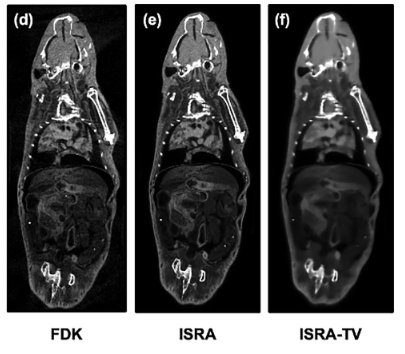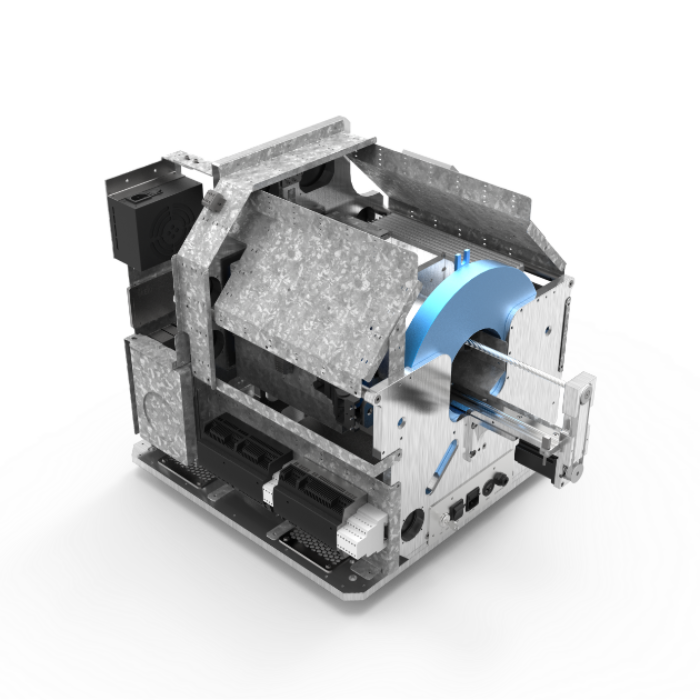Performance evaluation of a micro-CT system for laboratory animal imaging with iterative reconstruction capabilities
In this paper by Muller et al. the performance of the X-CUBE is described and the added value of an iterative reconstruction algorithm to obtain good quality images of low dose acquisitions with a short scan time is discussed.
Research question
During CT scanning, scan time and dose are important factors in terms of throughput and longitudinal imaging capabilities. On the one hand, low dose acquisitions allow researchers to evaluate the same animal multiple times over time, hereby enabling longitudinal imaging studies, where disease progression or therapy efficacy can be followed over time. On the other hand, shorter scan times result in high throughput imaging, where many animals can evaluated on the same day.
Experiment
In this work, the aim was to evaluate the performance characteristics of a compact bench top micro-CT scanner that provides iterative reconstruction capabilities with GPU-based acceleration. The potential benefit of iterative reconstruction for dose reduction was investigated. Based on a series of phantom experiments, the benchtop micro-CT system was characterized in terms of image uniformity, noise, low contrast detectability, linearity, and spatial resolution. Whole-body images of a plasticized ex vivo mouse phantom were also acquired.
Results
In summary, it was shown that the X-CUBE provides a good combination of performance characteristics between image uniformity, low contrast detectability, and resolution in short scan times. With the iterative reconstruction capabilities in mind (ISRA and ISRA-TV), the adoption of such algorithms by GPU-based acceleration enables the integration of noise reduction methods which here demonstrated potential for high-quality imaging at reduced doses.

